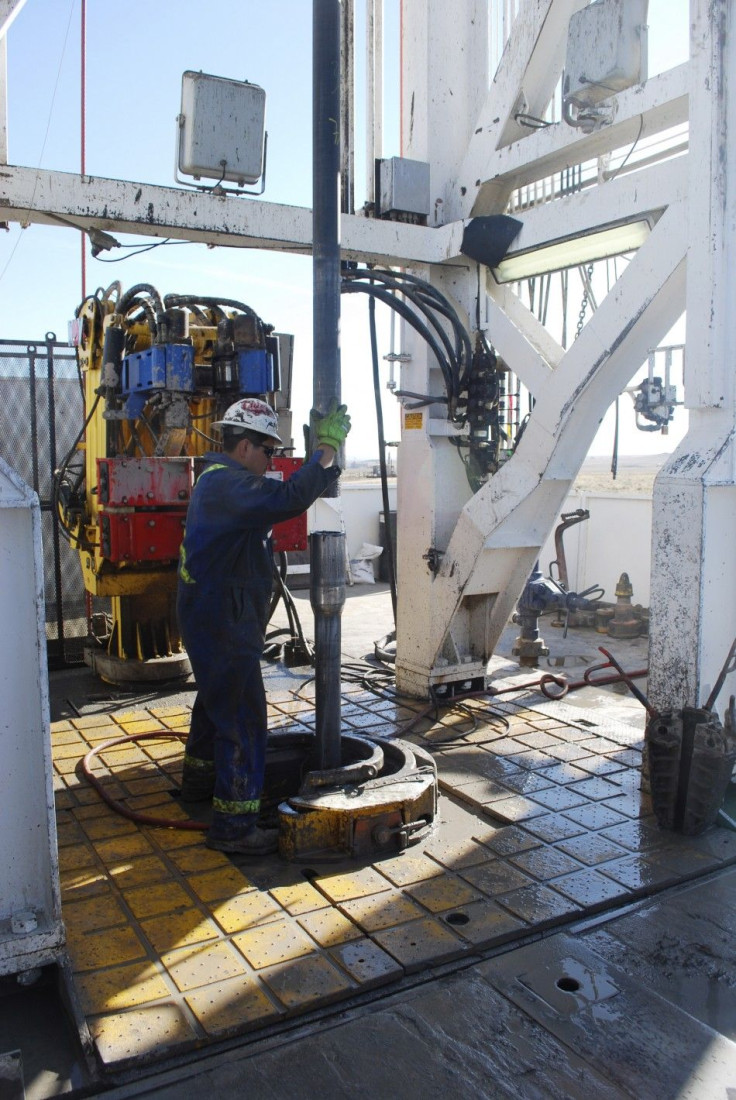Not Just In America: Australians Against Fracking, Too

Citing lax laws and concerns about their water supply, farmers in Australia are pressuring lawmakers to impose a moratorium on the controversial drilling technique known as fracking.
In what is proving to be a cry now heard throughout the world, not just in the U.S., the Western Australia Farmers Federation says it is worried natural gas and oil interests can trample over their rights.
The demand is further evidence of growing international unease on hydraulic fracturing, which is suspected of contaminating water supplies, polluting the environment, causing sickness and even provoking minor earthquakes.
The farmers federation is also asking that more research be conducted to guarantee the safety of hydraulic fracturing and that tougher laws be enacted to ensure safety and health.
The country's Mining Act of 1978 grants farmers and landowners control on determining what activities may or may not take place on their property. As long as written permission is not given, leasing, mining or any mineral extraction cannot take place.
The farmers' association is concerned that protection is not guaranteed under the state's newer laws governing hydraulic fracturing.
At the moment, we are operating in a knowledge vacuum, and the public needs more information on the impact of fracking in order to make informed decisions, said Dale Park, the farming federation's president. Clearly, there is a need for a wide-ranging environmental impact assessment to occur prior to the approval of any future fracking projects.
Hydraulic fracturing, or fracking, is a drilling process in which millions of gallons of water, sand and some toxic drilling chemicals are pumped at high pressure underground to fracture rock formations. The natural gas and oil trapped within is released and is then extracted back up to the surface.
Water is such a vital farm input and already in short supply, so contamination of a water supply could be terminal for farm businesses, Park said.
Fracking is a technique that has fueled energy booms in the U.S., including Texas, Wyoming, North Dakota, Arkansas and Pennsylvania. That list could grow longer if more states approve the process. New York and North Carolina could allow fracking in the next few years.
Fracking is also fueling an energy boom in parts of Argentina. In April, Great Britain green-lighted fracking even after reports of earthquakes there were linked to drilling activities.
In eastern Europe, Bulgaria voted to impose an indefinite ban on fracking after thousands there protested, while Poland and the Ukraine are actively trying to tap their underground resources to lessen their reliance on Russian natural gas. They are among the few European countries actively pursuing shale oil and natural gas resources.
France, a little more than a year ago, outlawed hydraulic fracturing, becoming the first country to do so. In the U.S., Vermont became the first state to ban fracking, last month. In Canada, government officials in Quebec imposed an indefinite ban until further study is conducted.
Protests and an ongoing investigation in New Zealand, however, have done nothing to dissuade the government there from considering fracking permits, which it announced in April.
Back in Australia, a fracturing project is being planned next month in the Perth basin, near one of Western Australia's largest urban centers, reported AAP, Australia's independent news service. Bill Marmion, Western Australia's environment minister, dismissed appeals against the project in March.
Australia, reported the AAP, is experiencing a rash of anti-fracking movements throughout its states.
Australia is the fourth-largest exporter of liquefied natural gas and has as much as 110 trillion cubic feet of natural gas in proven reserves, reported the U.S. Energy Information Administration.
© Copyright IBTimes 2024. All rights reserved.





















